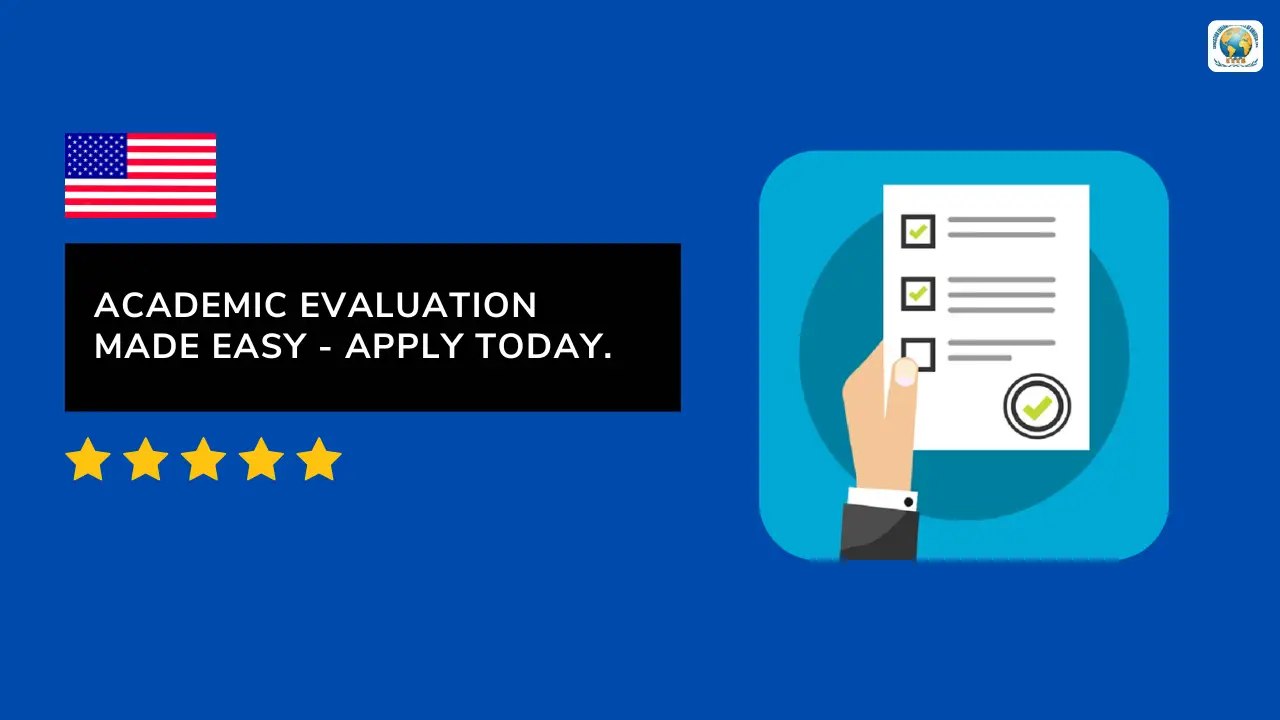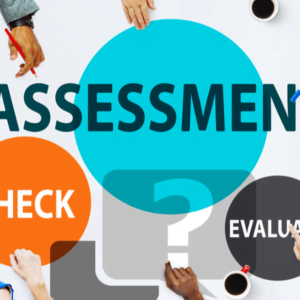Academic evaluation, also known as credential evaluation or foreign degree evaluation, is a crucial process that assesses and validates educational qualifications obtained from institutions outside the United States. This evaluation aims to establish the equivalency of your foreign academic credentials to the corresponding U.S. educational standards.
In today’s globalized world, where mobility and cross-border opportunities are increasingly common, academic evaluation plays a pivotal role in ensuring that your educational achievements are recognized and valued.
Demystifying the Purpose of Academic Evaluation
The primary objective of academic evaluation is to bridge the gap between different educational systems worldwide. Each country has its unique educational framework, curriculum, grading systems, and academic standards. This diversity can create challenges when individuals seek to pursue further studies, employment, or professional licensing in a country other than where they obtained their qualifications.
By undergoing an academic evaluation, you provide educational institutions, employers, licensing bodies, and immigration authorities with a comprehensive understanding of your academic background. The evaluation report serves as a reliable reference, translating your foreign credentials into their U.S. equivalents, making it easier for decision-makers to assess your eligibility for various academic, professional, or immigration-related opportunities.
Navigating the Different Types of Academic Evaluations
Academic evaluations typically fall into two main categories: document-by-document evaluation and course-by-course evaluation. Each type serves a distinct purpose and caters to specific requirements.
1. Document-by-Document Evaluation
A document-by-document evaluation, also known as a diploma evaluation or foreign degree evaluation, focuses on assessing the overall equivalency of your foreign degree or diploma to a corresponding U.S. degree level. This type of evaluation considers factors such as the institution’s accreditation, program of study, curriculum, and academic rigor.
Document-by-document evaluations are often required for employment purposes, professional licensing, or immigration applications where the primary concern is determining the overall level of education achieved.
2. Course-by-Course Evaluation
A course-by-course evaluation, also referred to as a transcript evaluation, provides a detailed analysis of your academic transcripts. It examines each course you have taken, the grades you received, and compares them to equivalent courses offered in the U.S. educational system.
This type of evaluation is typically required when applying for admission to a U.S. educational institution or when transferring academic credits. It helps institutions understand the specific content and depth of your studies, ensuring that you meet the necessary prerequisites for the program you are applying to.
Eligibility Requirements: When Do You Need an Academic Evaluation?
While academic evaluations are not mandatory in all situations, there are several scenarios where obtaining one is essential:
- Immigration Purposes: If you are applying for certain immigration categories, such as the H-1B visa or permanent residency (green card), the U.S. Citizenship and Immigration Services (USCIS) may require an academic evaluation to verify that your foreign degree or diploma meets the educational requirements for the specific visa or immigration category.
- Professional Licensing: Many professional licensing boards and regulatory bodies in the United States require foreign-educated individuals to obtain an academic evaluation to ensure that their educational qualifications meet the necessary standards for licensure or certification.
- Employment Opportunities: Employers may request an academic evaluation to verify the authenticity and equivalency of your foreign credentials, particularly for positions that require specific educational qualifications.
- Educational Admissions: If you plan to pursue further studies in the United States, such as a graduate degree program or a professional certification, most educational institutions will require an academic evaluation to assess your eligibility and determine the appropriate placement or transfer of credits.
Choosing the Right Academic Evaluation Service Provider
With numerous academic evaluation service providers available, it is crucial to select a reputable and reliable organization. Look for providers that are members of recognized associations, such as the National Association of Credential Evaluation Services (NACES) or the Association of International Credential Evaluators (AICE). These organizations ensure that their members adhere to strict standards and best practices in the field of academic evaluation.
When researching potential service providers, consider factors such as their experience, turnaround times, fees, and customer reviews. Reputable providers should offer transparent pricing structures, clear documentation requirements, and efficient communication channels to address any queries or concerns you may have throughout the evaluation process.
The Academic Evaluation Process: Step-by-Step Guide
The academic evaluation process typically involves the following steps:
- Gather Required Documents: Before initiating the evaluation process, you will need to collect the necessary documents, such as your degree certificate(s), academic transcripts, and any other relevant educational records. If your documents are not in English, you may need to provide certified translations.
- Submit Your Application: Most academic evaluation service providers offer online application portals where you can create an account, provide your personal and educational details, and submit your documents electronically or through mail.
- Document Review and Verification: The evaluation service provider will thoroughly review and verify the authenticity of your submitted documents. This may involve contacting the issuing institutions or consulting educational databases to ensure the legitimacy of your credentials.
- Evaluation and Report Generation: Once your documents have been verified, the evaluation team will analyze your academic credentials and determine their U.S. equivalency based on established standards and methodologies. A comprehensive evaluation report will be generated, detailing the findings and recommendations.
- Report Delivery: The final evaluation report can be delivered to you and/or the designated recipients, such as educational institutions, employers, or immigration authorities, either electronically or through physical mail, depending on your preferences and requirements.
Components of an Academic Evaluation Report:
An academic evaluation report is a detailed document that provides a comprehensive analysis of your foreign educational credentials. Typically, the report will include the following components:
- Personal and Academic Information: This section includes your personal details, such as your name, date of birth, and the country where you obtained your education.
- Educational Credentials Evaluated: A list of the specific degree(s), diploma(s), or certificate(s) that were evaluated, along with the issuing institution(s) and dates of attendance.
- U.S. Equivalency Determination: The report will clearly state the equivalent U.S. degree level or educational standing for each of your foreign credentials, based on the evaluation service provider’s assessment.
- Grade Point Average (GPA) and Credit Conversion: If you have obtained a course-by-course evaluation, the report will include a conversion of your grades to the U.S. grading system and calculate your overall GPA.
- Institutional Information: Details about the educational institutions you attended, such as their accreditation status, program descriptions, and entrance requirements.
- Evaluation Methodology: An explanation of the evaluation process and the resources used to determine the equivalency of your credentials.
- Evaluator’s Credentials: Information about the evaluator(s) who conducted the assessment, including their qualifications and expertise in the field of academic evaluation.
- References and Sources: A list of the reference materials, databases, and resources used during the evaluation process.
Factors Influencing the Cost and Turnaround Time of Academic Evaluations
The cost and turnaround time for academic evaluations can vary depending on several factors:
Cost Factors:
- Type of Evaluation: Course-by-course evaluations generally cost more than document-by-document evaluations due to the additional analysis required.
- Number of Credentials: The more credentials you need to be evaluated, the higher the cost may be.
- Additional Services: Some service providers offer additional services, such as certified translations or rush processing, which may incur additional fees.
- Service Provider: Pricing structures can vary among different academic evaluation service providers.
Turnaround Time Factors:
- Service Level: Most service providers offer standard, expedited, and rush processing options, with faster turnaround times at an additional cost.
- Completeness of Documents: Incomplete or missing documents may delay the evaluation process, leading to longer turnaround times.
- Volume of Applications: During peak seasons, service providers may experience higher volumes of applications, potentially extending the processing time.
It is essential to carefully review the service provider’s pricing and turnaround time estimates to ensure that they align with your specific needs and timeline.
Maximizing the Benefits of Academic Evaluation
While the primary purpose of academic evaluation is to facilitate educational, professional, or immigration-related opportunities, the benefits extend beyond these immediate goals. By undergoing an academic evaluation, you gain a deeper understanding of how your foreign credentials are perceived and valued in the U.S. educational system.
This knowledge can empower you to make informed decisions about your future academic or career pursuits. It can also help you identify potential gaps or areas where further education or training may be beneficial, allowing you to enhance your competitiveness in the job market or academic field.
Furthermore, academic evaluations can serve as valuable resources for educational institutions, employers, and licensing bodies, providing them with a standardized framework for assessing and comparing foreign credentials. This can promote diversity and inclusivity within their organizations, enabling them to tap into a broader pool of talent and expertise from around the world.
Addressing Common Concerns and Misconceptions
Despite its importance, the process of academic evaluation is often accompanied by concerns and misconceptions. Here are some common issues and their corresponding clarifications:
Concern: Academic evaluations are expensive and time-consuming.
Clarification: While academic evaluations do involve a cost and processing time, reputable service providers strive to offer competitive pricing and efficient turnaround times. Additionally, the investment in an academic evaluation can be invaluable in unlocking future opportunities and ensuring that your hard-earned credentials are recognized and valued.
Misconception: Academic evaluations are only necessary for immigration purposes.
Clarification: Academic evaluations are essential for a wide range of purposes, including educational admissions, professional licensing, and employment opportunities. They serve as a bridge between different educational systems, ensuring that your qualifications are accurately understood and appreciated.
Concern: The evaluation process is complicated and confusing.
Clarification: Reputable academic evaluation service providers offer clear guidance and support throughout the process. They provide detailed documentation requirements, online application portals, and dedicated customer service teams to assist you every step of the way.
Academic Evaluation
In today’s increasingly globalized society, academic evaluation plays a crucial role in promoting diversity and inclusivity within educational institutions, workplaces, and communities. By recognizing and validating the educational achievements of individuals from diverse backgrounds, academic evaluations help to break down barriers and create opportunities for people to contribute their unique perspectives and skills.
Educational institutions that embrace academic evaluation can attract a broader range of talented students, fostering a rich and diverse learning environment that prepares students for success in a global marketplace. Similarly, employers who value academic evaluation can tap into a wider pool of qualified candidates, benefiting from diverse perspectives and experiences that can drive innovation and growth.
Furthermore, academic evaluation supports the integration and empowerment of immigrant and refugee communities by ensuring that their educational credentials are recognized and valued. This can facilitate their successful integration into the workforce, enabling them to contribute to the economic and social fabric of their new communities.
The Future of Academic Evaluation
As the world becomes increasingly interconnected, the field of academic evaluation is evolving to keep pace with technological advancements and global trends. Service providers are leveraging digital platforms and secure online portals to streamline the evaluation process, enhancing efficiency and reducing turnaround times.
Additionally, there is a growing emphasis on collaboration and data sharing among academic evaluation organizations, educational institutions, and regulatory bodies. By establishing standardized practices and shared databases, the academic evaluation process can become more consistent and transparent, facilitating the seamless recognition of credentials across borders.
Moreover, the integration of blockchain technology and digital credentialing systems holds the potential to revolutionize the way academic credentials are issued, verified, and evaluated. These innovations could enhance security, transparency, and efficiency, while empowering individuals to maintain control over their educational records.
Conclusion:
Academic evaluation is a powerful tool that unlocks a world of opportunities for individuals with foreign educational credentials. By bridging the gap between different educational systems, academic evaluations ensure that your hard-earned qualifications are recognized and valued, opening doors to further academic pursuits, professional growth, and personal aspirations.
Whether you are an international student seeking admission to a U.S. educational institution, a skilled professional exploring employment opportunities, or an individual navigating the complexities of immigration processes, obtaining an academic evaluation can be a game-changer. It provides the necessary validation and credibility to showcase your academic achievements and pave the way for success in your chosen field.
As the global landscape continues to evolve, embracing academic evaluation becomes increasingly important for individuals, educational institutions, employers, and regulatory bodies alike. By recognizing and valuing the diversity of educational backgrounds, we can foster a more inclusive and equitable society, where talent and expertise transcend borders and barriers.
So, if you hold foreign academic credentials, take the first step towards unlocking your potential by seeking a reputable academic evaluation service provider. Invest in your future, and let your qualifications shine on the global stage.




